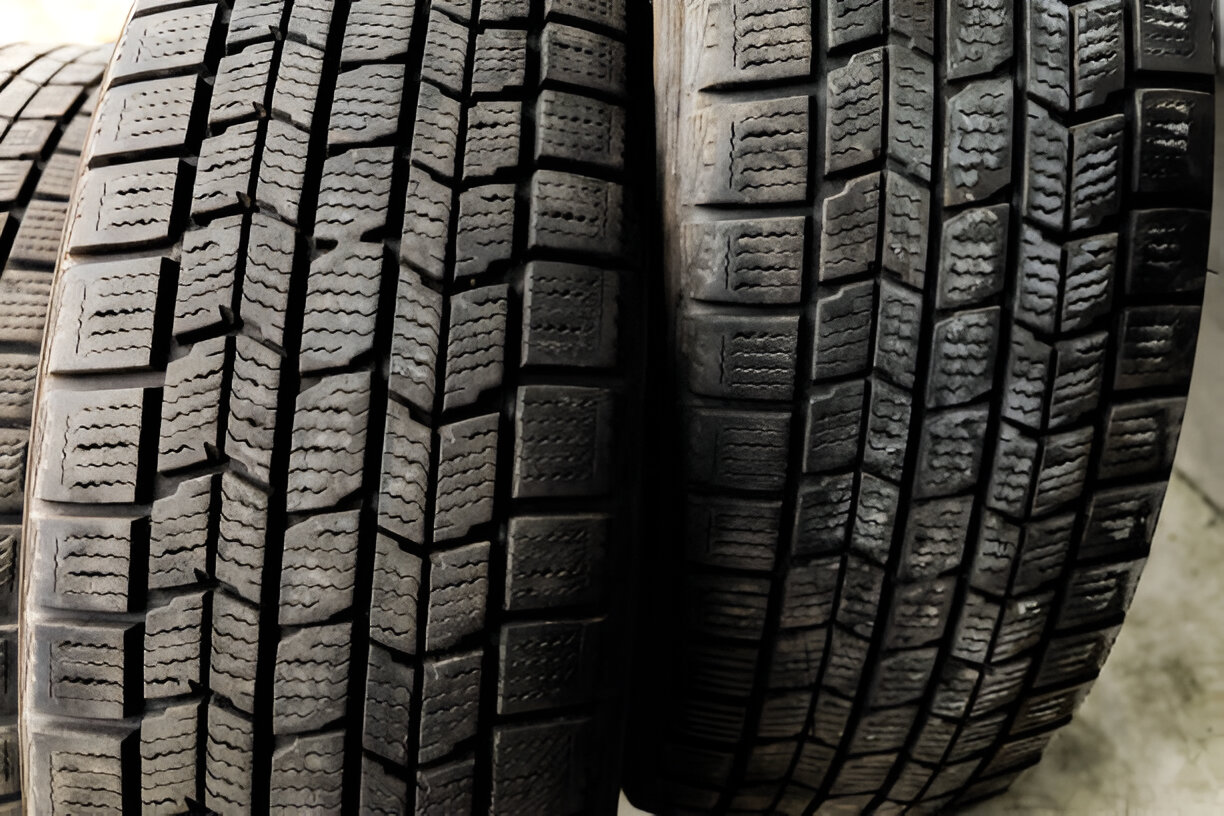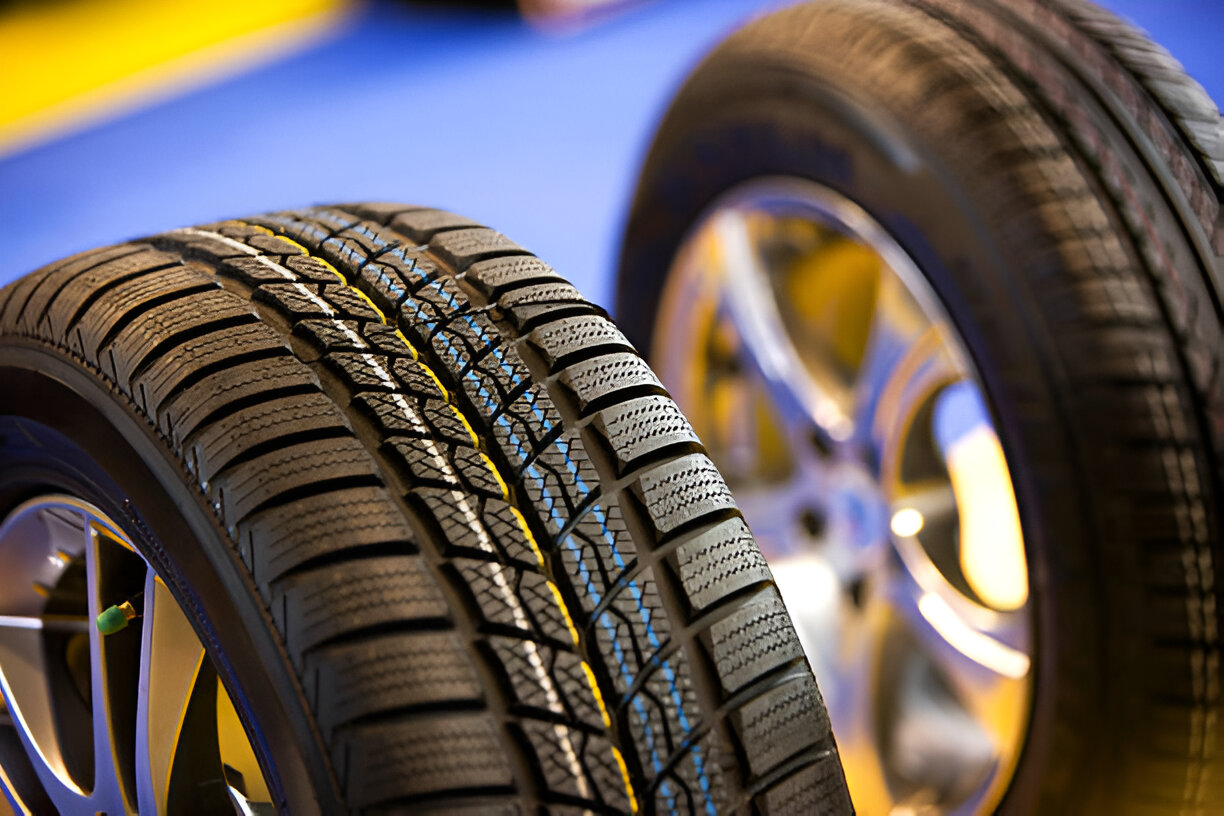Last Updated on August 22, 2024
5 Ways Differences between EV tires and regular tires
Electric vehicles, or EVs, are drastically changing the automotive industry with their technology, from how we use our cars and driving habits to infrastructure and societal impacts. Although EVs mirror a lot of the general makeup of gas-powered vehicles (both have doors, engines, tires, etc.), major factors set them completely apart. One such component is EV tires.
At first glance, EV tires look similar to regular car tires, but they possess unique features tailored to meet the specific demands of electric vehicles.
As the number of EVs on the road continues to grow, along with the companies producing parts for them, customers need to understand the differences between EV and standard car tires.

- The Tire Construction
Even though EV tires look similar to standard car tires, their rubber compound and construction are different, designed to withstand the additional weight of electric vehicles and the increased torque from electric motors.
Electric cars are inherently heavier than their gasoline-powered counterparts, primarily due to the large battery packs required to power them. These batteries can add several hundred kilograms to the vehicle’s total weight.
EV tires feature more robust sidewalls and internal construction to support this added load without compromising performance or safety. The rubber formula is also designed to be more durable and provide better grip under acceleration.
- The Rolling Resistance
The biggest problem of current EV models is a limited range, often far shorter than the ICE-powered models. So far, car companies have used various strategies to help EVs achieve longer distances, such as enhanced aerodynamics, coasting, and tires with reduced rolling resistance. car companies
Rolling resistance refers to the energy lost as a tire rolls under the vehicle’s weight. EV tires are engineered to have lower rolling resistance, which helps extend the driving range by reducing the energy required to keep the car moving.
This is achieved through advanced rubber compounds and innovative tire designs that minimize energy loss. While the technology of reducing rolling resistance has been used for years to improve fuel economy in internal combustion engine (ICE) models, it has been further developed for electric vehicles to maximize range from battery packs.
One significant thing to note is that EVs EV-distinct innovations often involve a trade-off with other performance characteristics.
- The Thread Life
We must be clear: EV tires have a shorter life than regular car tires. The reasons are straightforward.
First, the additional weight of the EVs puts pressure on the tire itself, causing wear. However, the second aspect is even more critical.
Electric motors’ immediate and substantial power output can place significant stress on tires, leading to faster wear. Of course, tire manufacturers are trying to prolong the life of the tires with advanced materials, thread patterns, and construction techniques, but EV tires will wear out faster than the ones on the standard, ICE-powered vehicles.
You need to know if you want an EV and are concerned about tire life.
- The Rolling Noise
Electric vehicles are inherently quieter than ICE vehicles because they lack an engine, a significant noise source. This increased quietness can make other sounds, such as tire noise, more noticeable. To address this, EV tires are engineered to minimize road noise.
Manufacturers use various techniques to absorb and reduce sound, such as incorporating foam inserts within the tire.
However, the latest research shows that a lack of rolling noise might not be an advantage. Due to the lack of engine noise and quiet tires, pedestrians are sometimes unaware that an electric vehicle is behind them. So, some companies are considering developing a form of alert or producing tires capable of generating rolling noises as a safety measure.
- The Price Difference
The economy of the EV tires is another exciting aspect that demands thorough analysis. Right from the start, you will notice a significant difference in prices for EV tires compared to standard vehicle tires.

However, it is justified by modern technology, materials, rubber compounds, and unique production processes. Simply put, EV tires are a more advanced product, and it is only logical that they will cost more.
However, a few more things affect the EV tire prices. First, most EVs have fairly big wheels ranging from 19 to 23 inches, requiring big, expensive tires. The second aspect is regarded as the overall production numbers. The market for EV tires is currently much smaller than standard car tires, meaning fewer economies of scale and higher per-unit production costs. As the demand for electric vehicles grows and technology advances, we may see a reduction in the price gap between EVs and standard car tires due to increased production and economies of scale.
Conclusion
Although EV and ICE tires do the same job, they are not identical. Significant differences exist in construction, materials, technology, performance, and wear.
While EV tires have some shortcomings, they are integral to the EV revolution and the shift toward more sustainable energy sources. With continued investment and advancements in this field, we may soon see EV tires that are superior and more affordable than standard car tires.
For a wide selection of high-quality EV tires that meet these unique demands, visit www.Tires-easy.com. Offers the latest tire technology to ensure your electric vehicle performs at its best.
If you’re eager to learn more about EV tires and how they can enhance your driving experience, be sure to check out these related articles:
- Top Selling EVs in Washington
- Best tires for Tesla to use in California
- Top-Selling EVs in Oregon: Discover the Most Popular Electric Cars on the Market
-
Writer










